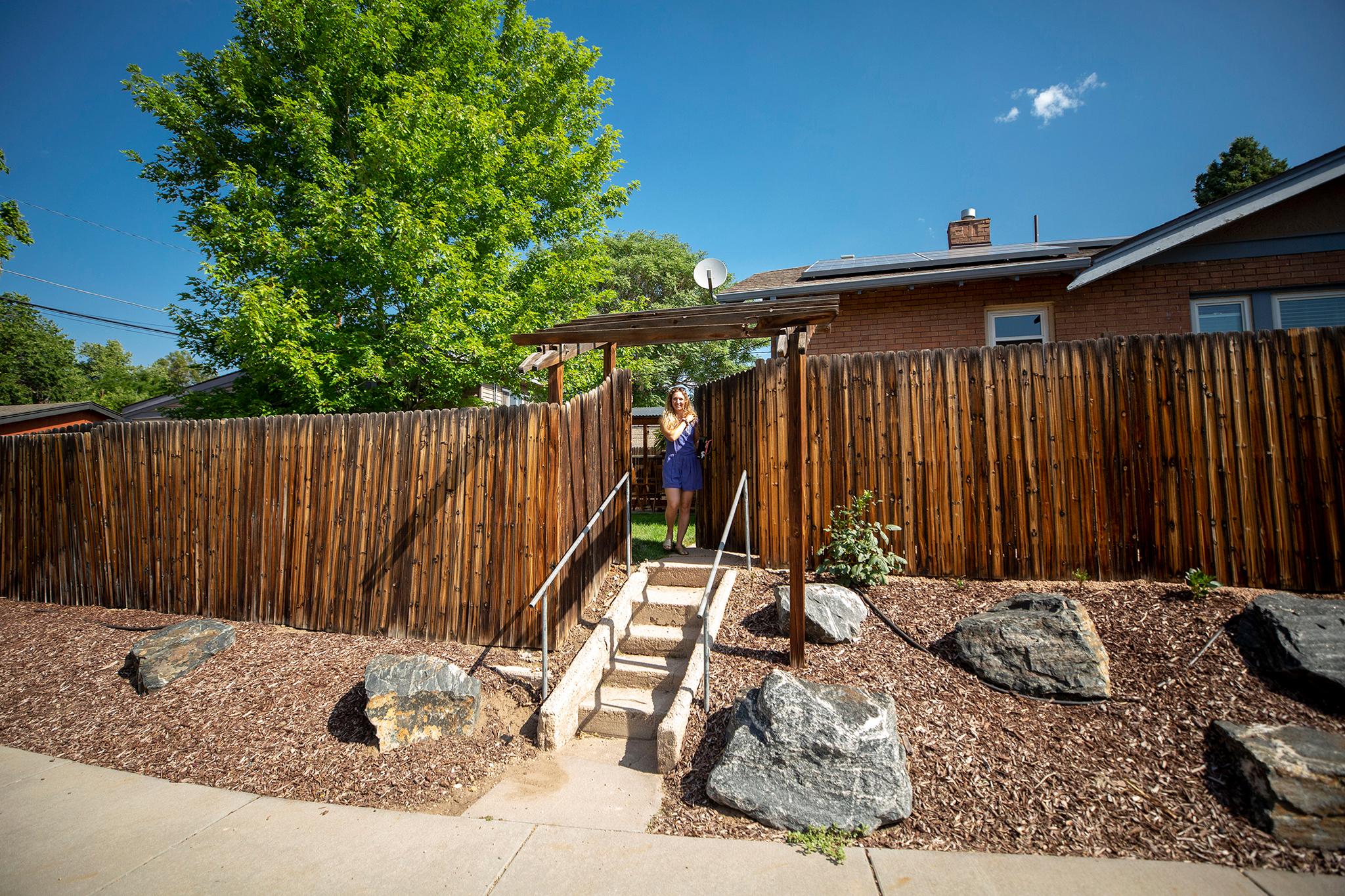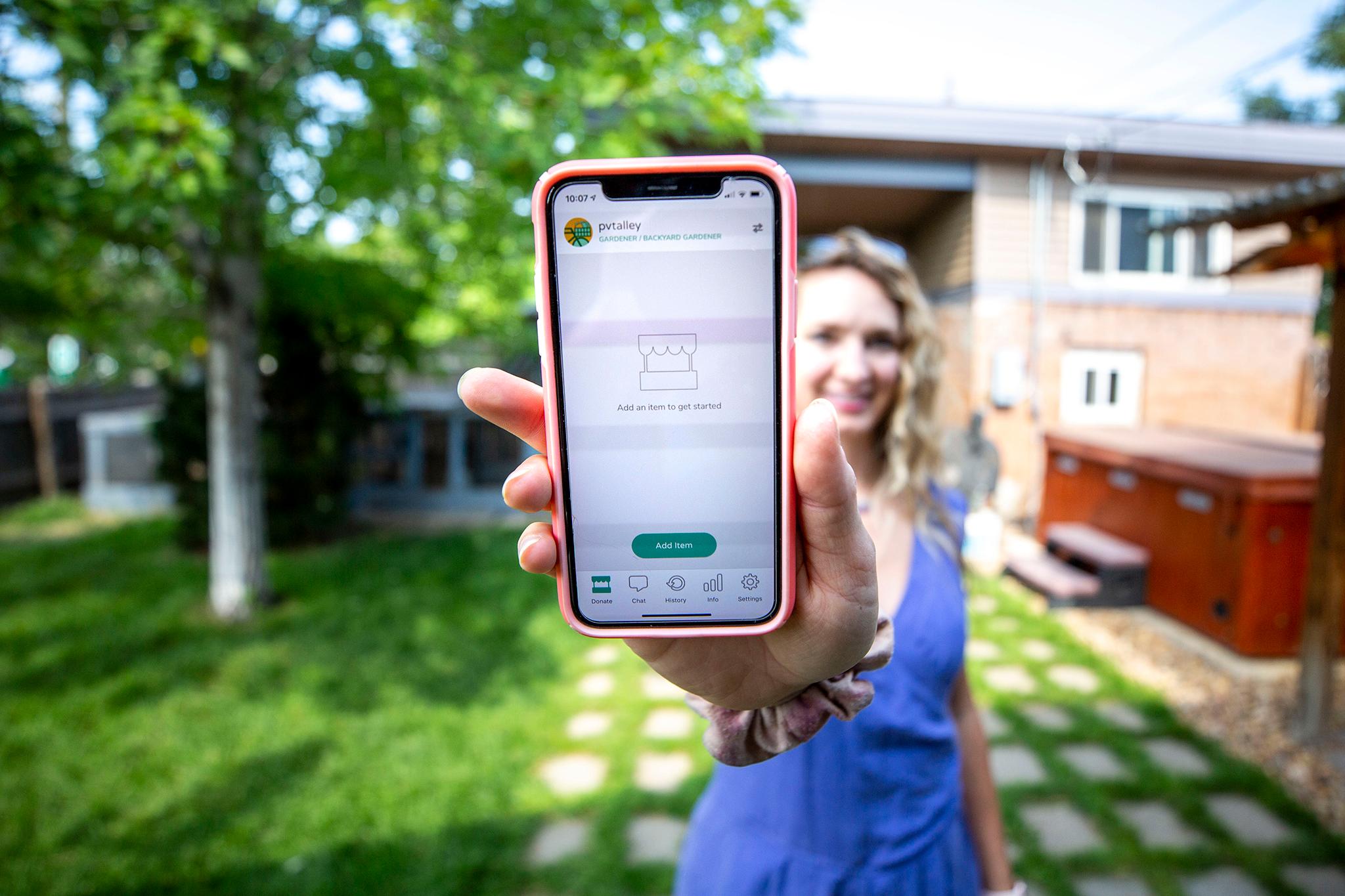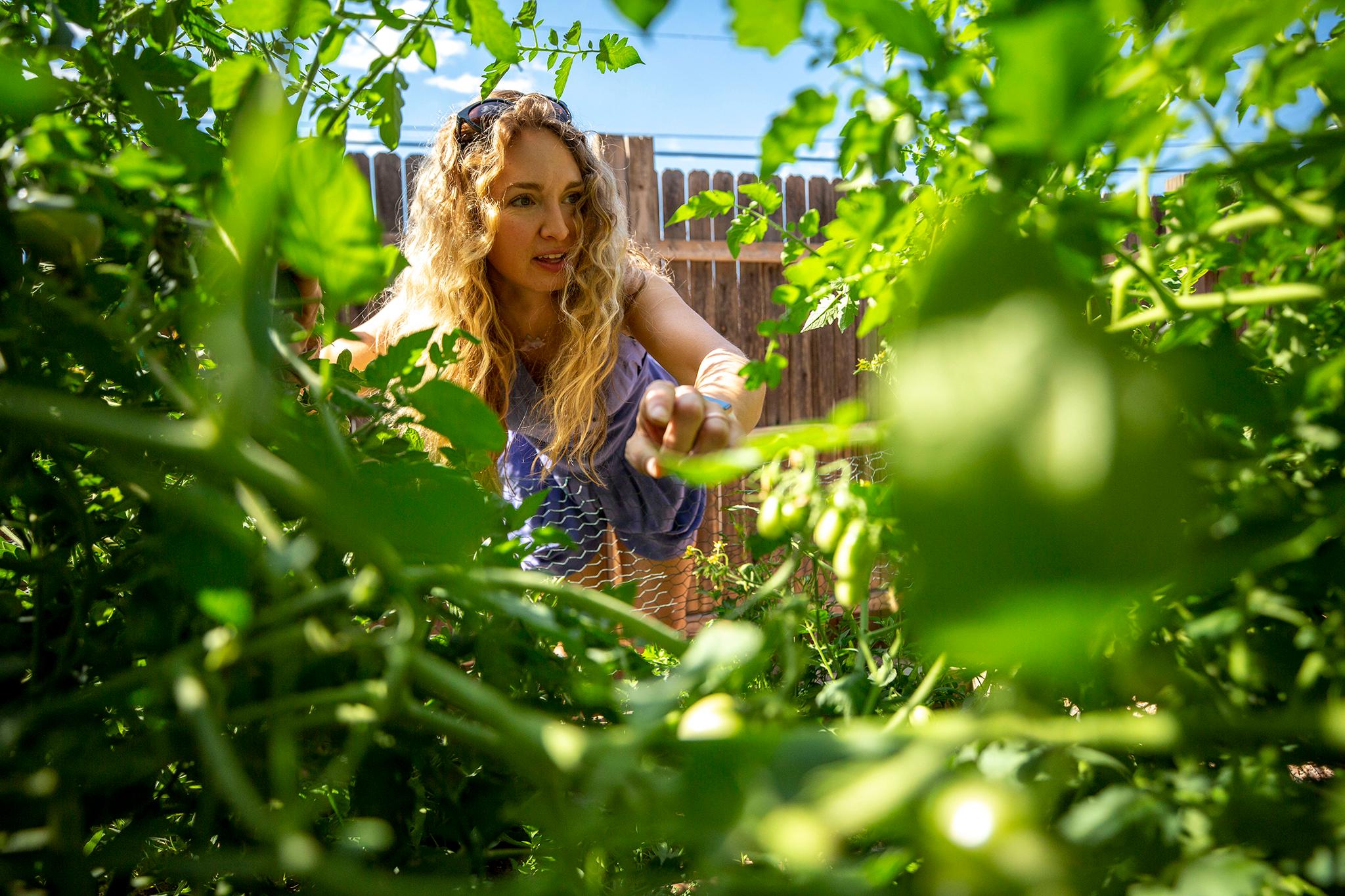If you're among the people who started a vegetable garden for something new to do while under quarantine, you might not realize what the coming harvest season (and it is coming fast) will mean. Especially if you planted zucchini.
Veteran backyard farmer Pamela Talley has seen a surfeit of sage as well as squash. And then there was that rogue romaine.
"We donated a ton of romaine because we couldn't keep up with it," Talley said.
To donate, Talley just taps her smart phone a few times to summon a tricycle mounted food rescuer. Talley uses Fresh Food Connect, which uses technology to create a local network of food growers and hunger relief organizations such as Denver's Metro Caring.
"If everybody has created a garden this year and they're about to be exploding, don't let it go to waste," Talley said. "Please don't let it go to waste. There are so many people hungry."

City officials estimate that amid the COVID-19 economic slowdown, the portion of Denver residents who cannot be sure of getting enough to eat has increased from 11 percent to about a quarter of the city's population.
Helen Katich, chief executive officer of Fresh Food Connect, has seen pantry operators and suppliers she works with such as Metro Caring and Denver Food Rescue cope with the consequences. For some pantries, demand has increased by as much as 10 times.
"We provide the tech and support," Katich said. "But it's really these front-line organizations that are doing phenomenal work."
Katich has heard that vegetable seed sales were up as the spring planting season coincided with the start of the stay-at-home order.
"Lots of first time gardeners this year," Katich said.
Katich's Fresh Food Connect has facilitated the distribution of about 30,000 pounds of food since it started in 2016 in just one Denver ZIP code, Talley's 80205. Denver Food Rescue, Denver Urban Gardens and the environmental nonprofit Groundwork Denver collaborated to launch Fresh Food Connect, which now works across Colorado and this year is moving into Iowa and Wisconsin. Gardeners are connected to pantries and other food organizations that are nearby so that the donations are "as fresh as it gets," Katich said.
"We're just seeing more interest on the gardeners side. And more need," said Katich, who has set a goal of collecting 20,000 pounds of food this year.
In the beginning, gardeners navigated to a web site to reach Fresh Food Connect. The project rolled out an app for smart phones at the end of April.
Talley pulled out her phone to demonstrate tapping such options as "vegetables" or "fruit" to indicate what she had to donate and entering when her produce would be ready to pick up from her front porch. Groundwork has hired people who collect produce on electric trikes with refrigerated cargo bins. Katich said app users will be able to count their donations the way some people count their steps on Fitbit.

Talley has been using Fresh Food Connect since shortly after she and her husband, Garrett Hood, moved into their home in Clayton five years ago. She is no longer sure whether she first learned about the project on NextDoor or when she saw the trikes painted in green, white and squash-yellow with the name of the organization, drawings of fruits and vegetables and the slogan "share your backyard bounty."
"I didn't realize that I was an early adopter," Talley said. "I guess I was."
Talley, whose background is in marketing, started her own florist business two years ago. A slump in weddings this coronavirus summer has given her time to volunteer for Fresh Food Connect in recent months, helping craft email campaigns to spread the word about the new mobile phone app.
Talley and Hood have chickens that roam during winters in two raised vegetable beds, each about the size of a pool table, tucked against the house's warm, south-facing brick wall. Chickens Heidi, Renee, Tina, Claudia and Miss Silkie are a team of organic weeders and poopers -- er, fertilizers.
"It's amazing the volume (of produce) we get just from these two beds," Hood said.
"I think the chickens are like our secret sauce," Talley said.
The beds produce more than enough vegetables for the couple to eat and donate. Heidi, Renee, Tina, Claudia and Miss Silkie also get their share.
But "even the chickens get tired of zucchini," Talley said.













